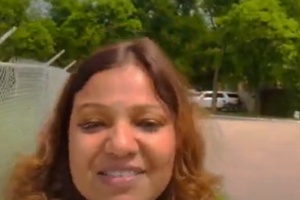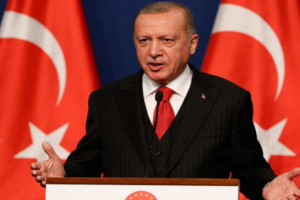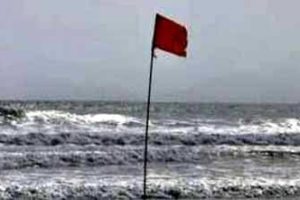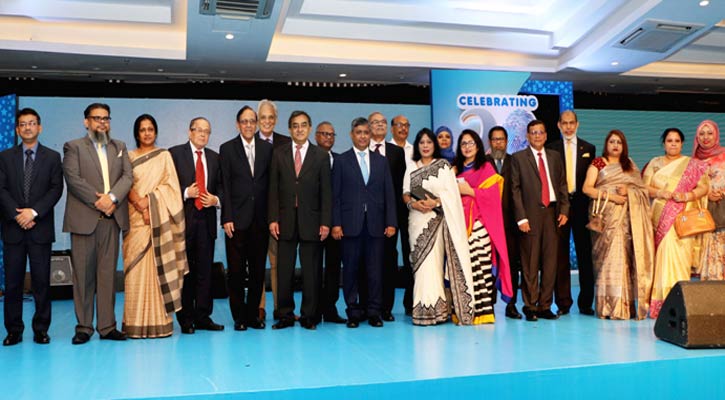US intelligence officers and Special Operations forces in Afghanistan alerted their superiors as early as January to a suspected Russian plot to pay bounties to the Taliban to kill US troops in Afghanistan, according to officials briefed on the matter. They believed at least one US troop death was the result of the bounties, two of the officials said.
The crucial information that led the spies and commandos to focus on the bounties included the recovery of a large amount of American cash from a raid on a Taliban outpost that prompted suspicions. Interrogations of captured militants and criminals played a central role in making the intelligence community confident in its assessment that the Russians had offered and paid bounties in 2019, another official has said.
Armed with this information, military and intelligence officials have been reviewing US and other coalition combat casualties over the past 18 months to determine whether any were victims of the plot. Four Americans were killed in combat in early 2020, but the Taliban have not attacked US positions since a February agreement to end the long-running war in Afghanistan.
The details added to the picture of the classified intelligence assessment, which The New York Times reported Friday has been under discussion inside the Trump administration since at least March, and emerged as the White House confronted a growing chorus of criticism Sunday over its apparent failure to authorise a response to Russia.
Trump defended himself by denying the Times report that he had been briefed on the intelligence, expanding on a similar White House rebuttal a day earlier. But leading congressional Democrats and some Republicans demanded a response to Russia that, according to officials, the administration has yet to authorise.
The president “needs to immediately expose and handle this, and stop Russia’s shadow war,” Rep. Adam Kinzinger, R-Ill., a member of the House Foreign Affairs Committee, wrote on Twitter.
Appearing on the ABC program “This Week,” House Speaker Nancy Pelosi said she had not been briefed on the intelligence assessment and had asked for an immediate report to Congress. She accused Trump of wanting “to ignore” any charges against Russia.
“Russia has never gotten over the humiliation they suffered in Afghanistan, and now they are taking it out on us, our troops,” she said of the Soviet Union’s bloody war there in the 1980s. “This is totally outrageous. You would think that the minute the president heard of it, he would want to know more instead of denying that he knew anything.”
Spokespeople for the CIA, the director of national intelligence and the Pentagon declined to comment on the new findings. A National Security Council spokesman John L. Ullyot, said in a statement Sunday night, “The veracity of the underlying allegations continues to be evaluated.”
Trump said Sunday night on Twitter that “Intel just reported to me that they did not find this info credible, and therefore did not report it to me or @VP.” One senior administration official offered a similar explanation, saying that Trump was not briefed because the intelligence agencies had come to no consensus on the findings.
But another official said there was broad agreement that the intelligence assessment was accurate, with some complexities because different aspects of the intelligence — including interrogations and surveillance data — resulted in some differences among agencies in how much confidence to put in each type.
Though the White House press secretary, Kayleigh McEnany, claimed Saturday that Trump had not been briefed about the intelligence report, one US official had told The Times that the report was briefed to the highest levels of the White House. Another said it was included in the President’s Daily Brief, a compendium of foreign policy and national security intelligence compiled for Trump to read.
McEnany did not challenge The Times’ reporting on the existence of the intelligence assessment, a National Security Council interagency meeting about it in late March and the White House’s inaction. Multiple other news organisations also subsequently reported on the assessment, and The Washington Post first reported Sunday that the bounties were believed to have resulted in the death of at least one US service member.
The officials briefed on the matter said the assessment had been treated as a closely held secret but that the administration expanded briefings about it over the last week — including sharing information about it with the British government, whose forces were among those said to have been targeted.
Republicans in Congress demanded more information from the Trump administration about what happened and how the White House planned to respond.
Rep. Liz Cheney of Wyoming, the third-ranking House Republican, said in a Twitter post Sunday: “If reporting about Russian bounties on US forces is true, the White House must explain: 1. Why weren’t the president or vice president briefed? Was the info in the PDB? 2. Who did know and when? 3. What has been done in response to protect our forces & hold Putin accountable?”
Multiple Republicans retweeted Cheney’s post. Rep. Daniel Crenshaw, R-Texas, a former member of the Navy SEALs, amplified her message, tweeting, “We need answers.”
In a statement in response to questions, Sen. Mitch McConnell of Kentucky, the Senate majority leader, said he had long warned about Russia’s work to undermine American interests in the Middle East and southwest Asia and noted that he wrote an amendment last year rebuking Trump’s withdrawal of forces from Syria and Afghanistan.
“The United States needs to prioritize defense resources, maintain a sufficient regional military presence and continue to impose serious consequences on those who threaten us and our allies — like our strikes in Syria and Afghanistan against ISIS, the Taliban and Russian mercenary forces that threatened our partners,” McConnell said.
Aides for other top Republicans either declined to comment or did not respond to requests for comment on Sunday, including Rep. Kevin McCarthy of California, the top House Republican; Sen. Marco Rubio of Florida, the acting chairman of the Senate Intelligence Committee; and Sen. Jim Risch of Idaho, the chairman of the Senate Foreign Relations Committee.
In addition to saying he was never “briefed or told” about the intelligence report — a formulation that went beyond the White House denial of any formal briefing — Trump also cast doubt on the assessment’s credibility, which statements from his subordinates had not.
Specifically, he described the intelligence report as being about “so-called attacks on our troops in Afghanistan by Russians”; the report described bounties paid to Taliban militants by Russian military intelligence officers, not direct attacks. Trump also suggested that the developments could be a “hoax” and questioned whether The Times’ sources — government officials who spoke on condition of anonymity — existed.
Trump then pivoted to attack former Vice President Joe Biden, who criticised the president Saturday for failing to punish Russia for offering bounties to the Taliban, as well as Biden’s son, Hunter, who is the target of unsubstantiated claims that he helped a Ukrainian energy firm curry favour with the Obama administration when his father was vice president.
“Nobody’s been tougher on Russia than the Trump Administration,” Trump tweeted. “With Corrupt Joe Biden & Obama, Russia had a field day, taking over important parts of Ukraine — Where’s Hunter?”
US officials said the Russian plot to pay bounties to Taliban fighters came into focus over the past several months after intelligence analysts and Special Operations forces put together key pieces of evidence.
One official said the seizure of a large amount of American cash at one Taliban site got “everybody’s attention” in Afghanistan. It was not clear when the money was recovered.
Two officials said the information about the bounty hunting was “well-known” among the intelligence community in Afghanistan, including the CIA’s chief of station and other top officials there, like the military commandos hunting the Taliban. The information was distributed in intelligence reports and highlighted in some of them.
The assessment was compiled and sent up the chain of command to senior military and intelligence officials, eventually landing at the highest levels of the White House. The Security Council meeting in March came at a delicate time, as the coronavirus pandemic was becoming a crisis and prompting shutdowns around the country.
A former US official said the national security adviser, Robert C. O’Brien, and the president’s chief of staff, Mark Meadows, would have been involved in any decision to brief Trump on Russia’s activities, as would have the intelligence analyst who briefs the president. The director of the CIA, Gina Haspel, might have also weighed in, the former official said.
McEnany cited those three senior officials in her statement saying the president had not been briefed.
National security officials have tracked Russia’s relationship with the Taliban for years and determined that Moscow has provided financial and material support to senior and regional Taliban leaders.
While Russia has at times cooperated with the US and appeared interested in Afghan stability, it often seems to work at crosscurrents with its own national interest if the result is damage to US national interests, said a former senior Trump White House official, who spoke on the condition of anonymity to discuss sensitive security assessments.
Revenge is also a factor in Russia’s support for the Taliban, the official said. Russia has been keen to even the scales after a bloody confrontation in 2018 in Syria, when a massive US counterattack killed hundreds of Syrian forces along with Russian mercenaries nominally supported by the Kremlin.
“They are keeping a score sheet, and they want to punish us for that incident,” the official said.
Both Russia and the Taliban have denied the US intelligence assessment.
Pelosi said that if the president had not, in fact, been briefed, then the country should be concerned that his administration was afraid to share with him information regarding Russia.
Pelosi said that the episode underscored Trump’s accommodating stance toward Russia and that with him, “all roads lead to Putin.”
“This is as bad as it gets, and yet the president will not confront the Russians on this score, denies being briefed,” she said. “Whether he is or not, his administration knows, and some of our allies who work with us in Afghanistan have been briefed and accept this report.”
John Bolton, Trump’s former national security adviser, said on “This Week” that he was not aware of the intelligence assessment, but he questioned Trump’s response on Twitter.
“What would motivate the president to do that, because it looks bad if Russians are paying to kill Americans and we’re not doing anything about it?” Bolton said. “The presidential reaction is to say, ‘It’s not my responsibility. Nobody told me about it.’ And therefore to duck any complaints that he hasn’t acted effectively.”
Bolton said this summed up Trump’s decision-making on national security issues. “It’s just unconnected to the reality he’s dealing with.”
©2020 The New York Times Company





















